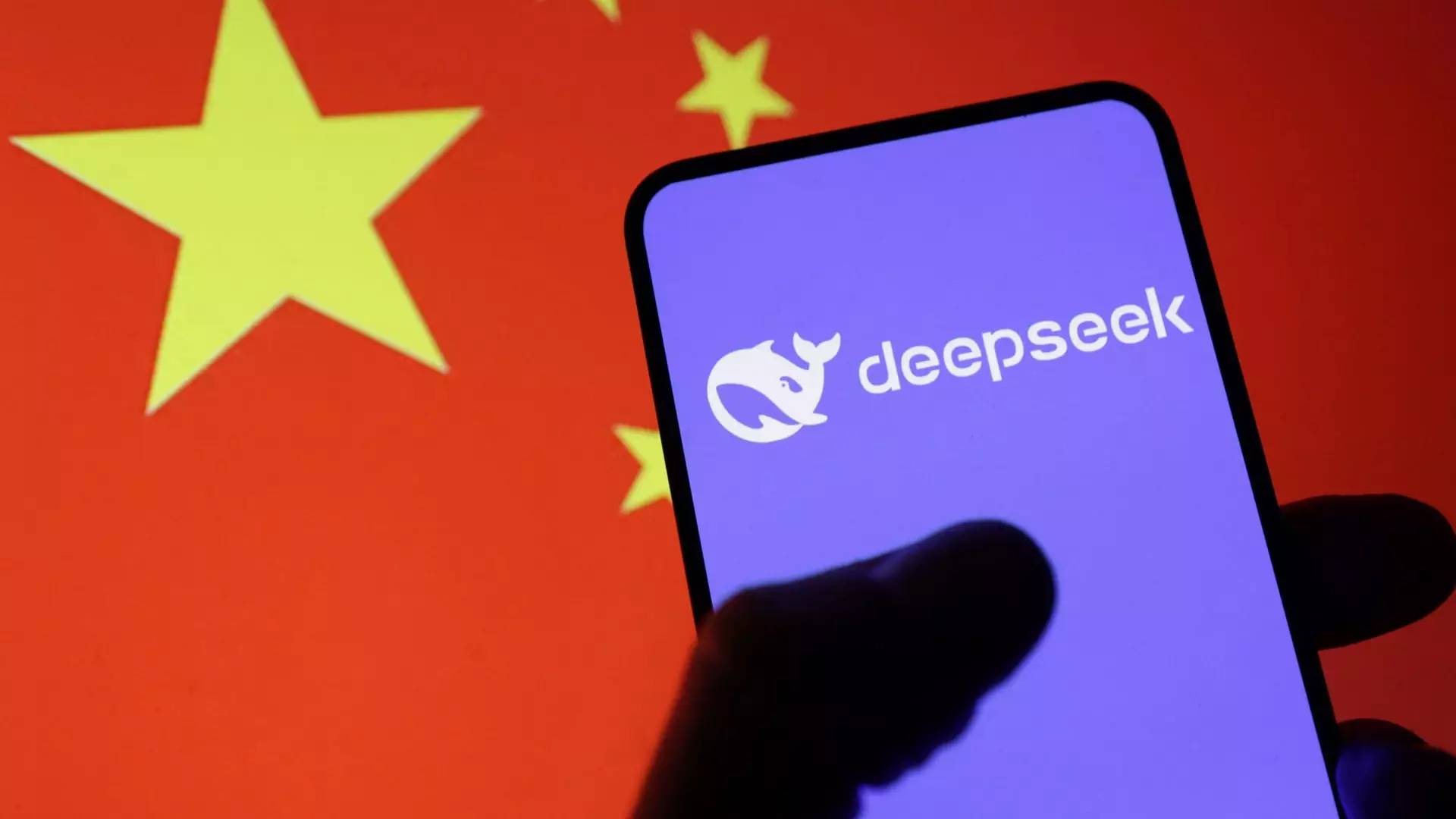The recent focus on Alibaba and Tencent by UBS underscores a fascinating but troubling trend—an increasingly concentrated AI ecosystem within China’s tech giants. While the sector promises substantial growth, the selection of these two titans as the primary flagbearers exemplifies a broader underlying issue: the risk of monopolization stifling innovation and competition. By zeroing in on these companies, investors and policymakers may inadvertently feed into a narrative of over-reliance on a handful of dominant firms, thus setting the stage for fragility in an otherwise dynamic market. It’s crucial to scrutinize whether this concentration will really lead to sustainable progress or merely prop up entrenched incumbents at taxpayers’ and consumers’ expense.
The rapid growth of AI in China is undoubtedly impressive, driven by internal advancements in chip development and the aggressive monetization strategies of internet leaders. However, the assumption that these companies will maintain their lead without intervention is overly optimistic. The sector is still in its nascent stages, riddled with geopolitical risks, regulatory uncertainties, and supply chain vulnerabilities. Investing heavily in Alibaba and Tencent might seem prudent now, but it risks reinforcing a system that favors a few players, potentially choking innovation from smaller, more agile startups that could bring fresh ideas to the table.
Economic Risks of Overconcentration
China’s tech giants have historically avoided fostering a genuinely competitive environment. Alibaba, with its full-stack AI cloud infrastructure, and Tencent, leveraging AI to boost gaming and advertising, are significant but are also the pillars of a market that could be poised for a classic case of “too big to fail.” This concentration heightens systemic risks, especially when considering the country’s regulatory environment—ever-changing and unpredictable. Overreliance on these companies for AI advancement might create a fragile ecosystem, vulnerable to policy shifts or internal missteps.
Furthermore, the surge in AI investments by these firms—more than doubling expenditures year-over-year—raises eyebrows about sustainability. While commitment to AI development is commendable, it’s not enough. In the long run, such capital outlays must translate into innovative products that benefit the broader economy. If growth is primarily driven by incremental improvements within existing paradigms, the risk of stagnation remains high. Meanwhile, nascent startups and international players—potential sources of disruptive innovation—might find themselves edged out, creating monopolistic conditions that undermine the very competitive spirit essential for true technological progress.
Chinese AI on a Collision Course with Geopolitical Realities
The broader geopolitical context complicates China’s AI ambitions. The U.S. has imposed chip restrictions and export controls, seeking to delay China’s technological leap and maintain strategic superiority. While Chinese companies are attempting to circumvent restrictions by boosting domestic chip development and diversification, these measures are only palliative. The resilience of Alibaba and Tencent in this environment relies heavily on their access to high-quality chips and technology—a supply chain that remains under threat.
UBS analysts point out that these companies have ample chip inventory and alternative inference chip options, but this is a temporary balm rather than a sustainable solution. Dependence on imported chips has always been a vulnerability, and with U.S. restrictions intensifying, the risk of future bottlenecks increases. The question remains whether these giants can maintain their momentum solely through internal innovation and resource reallocation or if the broader constraints will hobble their aspirations. In essence, China’s AI race is less of a sprint and more of a strategic marathon with tangible geopolitical hurdles.
A Future Where Monopoly Hamstrings Innovation
The aggressive AI investments by Alibaba and Tencent signal a recognition of the sector’s long-term importance, yet this focus risks creating a too-centralized AI landscape that inhibits healthy competition. Large-scale government-backed monopolies may provide short-term benefits, such as rapid deployment and resource consolidation, but they are unlikely to sustain breakthroughs in the absence of competitive pressure. History has shown that innovation thrives when diverse firms challenge each other—something that China’s current ecosystem risks quelling.
Moreover, these corporate giants still maintain extensive traditional business operations—Alibaba’s e-commerce and Tencent’s gaming—diversifying their portfolios, but perhaps at the cost of diluting their focus on AI. Their investments serve both strategic and defensive purposes, but without an infusion of smaller, nimblest players, the sector could risk stagnation. If the Chinese government continues to lean on these giants as national champions, it may inadvertently suppress emergent competition that could catalyze genuine technological breakthroughs, impacting consumer choice and economic resilience.
The China AI story, as reflected by UBS’s focus on Alibaba and Tencent, presents a paradox—massive potential marred by systemic risks. While these companies are formidable engines of innovation, their dominance could threaten the very openness and dynamism that once fueled China’s rise as a global tech leader. Absent a thoughtful framework to encourage competition and mitigate geopolitical vulnerabilities, China’s AI journey might become a double-edged sword—offering rapid growth in the short term but risking long-term stagnation and systemic fragility. As a center-right observer, I contend that fostering a more balanced ecosystem, where innovation is dispersed and competition stimulated, is essential to ensuring that AI becomes a tool for broader economic strengthening rather than a symbol of monopoly power.

